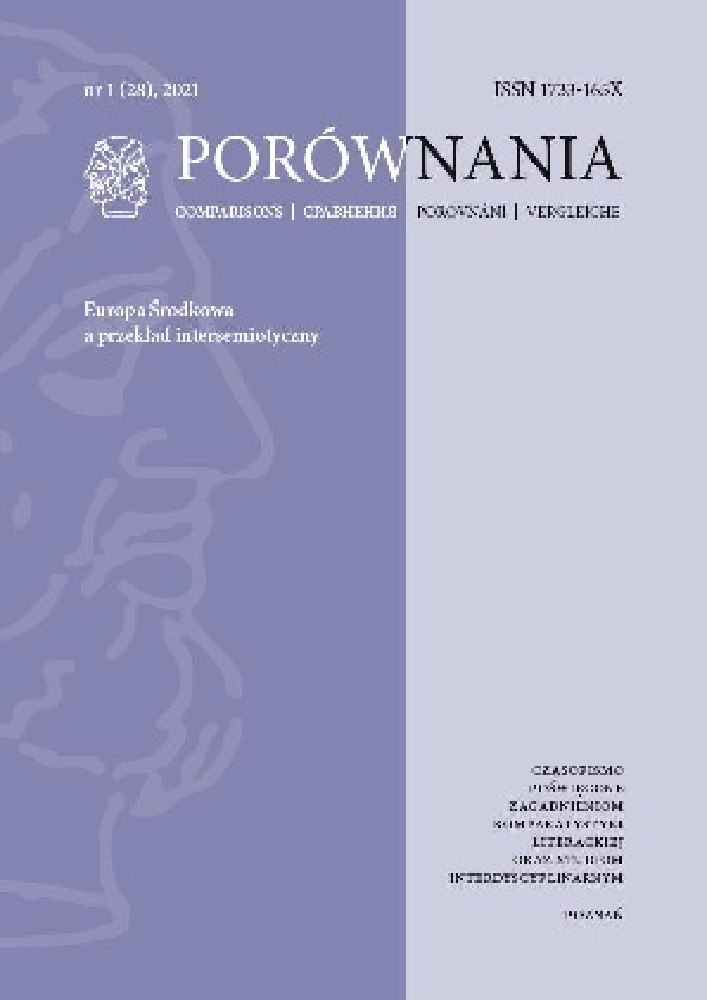Abstract
Northern Ireland’s socio-political milieu over recent decades “pressured” its residents to affiliate with one of the two strongly antagonizing identities. In 1998, the Good Friday Agreement was signed to terminate the conflict between the Catholic/ Nationalist and Protestant/Unionist side. The primary aim of that settlement was to establish a solid collective framework for securing mutual coexistence, but more importantly it endorsed the idea of a regional (reformed) identity to be shared by both communities. And inasmuch as the aforementioned societal consensus has been institutionalized, even if only on the very rudimentary level, then bidding farewell to political/religious (almost sectarian) sympathies has turned to be far more difficult. Glenn Patterson stands among those home-grown writers who have been struggling with the burden of such troublesome identity formations. Therefore, the paper’s main focus is to explore the setbacks Patterson and the like face when trying to acknowledge a distinctly new character of Northern Irishness. In doing so, he highlights that the sine qua non of any potential success consists in deconstructing/defying the deep-seated divisions of the Troubles. Mindful of the journal’s thematic frame of a timely consideration of the “Recovered Territories,” I intend to depict Patterson as an individual/author/citizen whose artistic endeavor has been constantly gravitating towards reclaiming the ground for [re]building he Northern Irish identity, and replacing the well-known (Catholic-Protestant/ Irish-British) dichotomies. Drawing upon two collections of Patterson’s non-fiction accounts, Lapsed Protestant from 2006 and Here’s Me Here from 2016, my article concentrates upon both the hopes and obstacles manifested during the post-Troubles context of an attempted tropism towards a more neutral/non-politicized Northern Irish identification, in hopes that the similar dynamics may also shed light upon the Polish context.
References
Bartnik, Ryszard. Inscribed into the Past. A Comparative Study of South African and Northern Irish Literary Narratives after the Political Watersheds of the 1990s. Poznań: Wydawnictwo Naukowe UAM, 2017.
Brewer, John. “The Sociology of the Northern Irish Peace Process.” The Legacy of the Good Friday Agreement. Northern Irish Politics, Culture and Art after 1998. Eds. Charles I. Armstrong, David Herbert and Jan E. Mustad. Basingstoke: Palgrave Macmillan, 2019. 271–289.
Burns, Anna. Milkman. London: Faber and Faber, 2018.
Bush, Kenneth. “The Politics of Post-conflict Space: The Mysterious Case of Missing Graffiti in ‘Post-troubles’ Northern Ireland.” Contemporary Politics 19.2 (2013): 167–189.
Fenton, Owen. “Narratively Framing Emergent Identities in Post-agreement Societies of the Northern Irish Identity with the Provincial Media.” National Identities 20.3 (2018): 235–257.
Grzechnik, Marta. “‘Recovering’ Territories: The Use of History in the Integration of the New Polish Western Borderland after World War II.” Europe-Asia Studies 69.4 (2017): 668–692.
Hancock, Landon E. “Narratives of Commemoration: Identity, Memory, and Conflict in Northern Ireland 1916–2016.” Peace and Change. A Journal of Peace Research 44.2 (2019): 244–265.
Heidemann, Birte. New Direction in Irish and Irish American Literature. Basingstoke: Palgrave Macmillan, 2016.
Hogg, Clare Dwyer. “Glenn Patterson Interviewed by C. D. Hogg,” 26 March 2004, https://tinyurl.com/at4739na. Accessed 23 November 2008.
Hopkins, Stephen. The Politics of Memoir and the Northern Irish Conflict. Liverpool: Liverpool UP, 2013.
Ichijo, Atskuko et al. “Debate on Understanding National Identity by David Mc-Crone and Frank Bechhofer.” Nations and Nationalism 23.3 (2017): 441–462.
Kearney, Richard. “Renarrating Irish Politics in a European Context.” European Studies 28 (2010): 41–57.
Kennedy-Andrews, Elmer. (De-)constructing the North. Fiction and the Northern Irish Troubles since 1969. Dublin: Four Courts Press, 2003.
Łojek, Aleksandra. Belfast. 99 Ścian Pokoju (Belfast. The 99 Walls of Peace). Wołowiec: Wydawnictwo Czarne, 2015.
McKittrick, David and David McVea. Making Sense of the Troubles. London: Penguin Books, 2001.
McNicholl, Kevin et al. “How the ‘Northern Irish’ National Identity is Understood and Used by Young People and Politicians.” Political Psychology 40.3 (2019): 487–506.
Muldoon, Orla T. et al. “Religious and National Identity after the Belfast Good Friday Agreement.” Political Psychology 28.1 (2007): 89–103.
Parker, Michael. Northern Irish Literature, 1975–2006. London: Palgrave Macmillan, 2007.
Patterson, Glenn. “Interviewed by Aliaga.” Interviews with Writers and Academics. Eds. Jacqueline Hurtley et al. Amsterdam, Atlanta: Rodopi, 1998. 93–107.
---. Lapsed Protestant. Dublin: New Island, 2006.
---. Here’s Me Here. Dublin: New Island, 2016.
---. Backstop Land. London: Head of Zeus, 2019.
Schacter, Rafael. “A Review of ‘The Great Reimagining: Public Art, Urban Space and the Symbolic Landscapes a ‘New’ Northern Ireland’ by Bree T. Hocking.” Journal of the Royal Anthropological Institute 23 (2017): 193–194.
Shirlow, Peter and Brendan Murtagh. Belfast: Segregation, Violence and the City. London: Pluto Press, 2006.
The Northern Ireland Peace Agreement. 1998, https://tinyurl.com/weuep45x. Accessed 11 December 2020.
Todd, Jennifer. “Partitioned Identities? Everyday National Distinctions in Northern Ireland and the Irish State.” Nations and Nationalism 21.1 (2015): 21–42.
License
Utwory opublikowane w czasopiśmie „Porównania”, na platformie Pressto należącej do Uniwersytetu im. Adama Mickiewicza w Poznaniu są udostępniane na licencji Creative Commons Uznanie autorstwa - Bez utworów zależnych 4.0 Międzynarodowe (CC BY-ND 4.0)
Tym samym wszyscy zainteresowani są uprawnieni do korzystania z utworów opublikowanych pod następującymi warunkami:
-
uznania autorstwa — czyli obowiązek podania wraz z rozpowszechnianym utworem informacji o autorstwie, tytule, źródle (odnośniki do oryginalnego utworu, doi) oraz samej licencji
-
bez utworów zależnych — remiksując, przetwarzając lub tworząc na podstawie utworu, nie wolno rozpowszechniać zmodyfikowanych treści.
-
brak dodatkowych ograniczeń — nie można korzystać ze środków prawnych lub technologicznych, które ograniczają innych w korzystaniu z utworu na warunkach określonych w licencji.
Uniwersytet im. Adama Mickiewicza w Poznaniu zachowuje prawo do czasopisma jako całości (układ, forma graficzna, tytuł, projekt okładki, logo itp.).
Autor zachowuje prawa majątkowe, ale udziela zgody Uniwersytetowi im. Adama Mickiewicza w Poznaniu na wykorzystanie dzieła. Autorzy tekstów zakwalifikowanych do publikacji proszeni są o wypełnienie podpisanie i przesłanie umowa (PL) agreement (EN)
Agreement for granting a royalty-free license to works with a commitment to grant a CC sub-license





